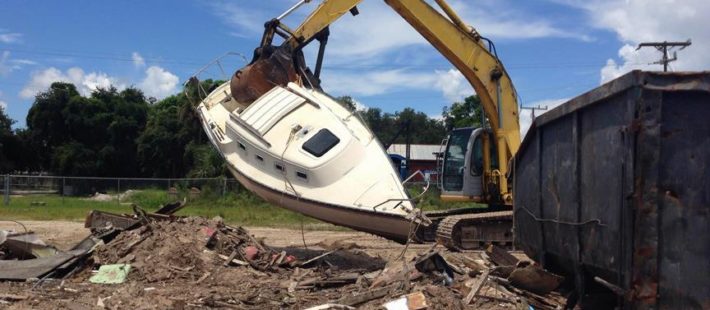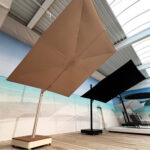The BoatUS Foundation for Boating Safety and Clean Water financed the proposal to recycle end-of-life recreational fiberglass boats.
The US $10,000 donation are designed for the Rhode Island Fiberglass Vessel Recycling Project, guided by the Rhode Island Marine Trades Association and the Rhode Island Sea Grant. It will be possible to develope all processes for turning old boat into cement, especially the project will focus on the dismantling and re-processing of fiberglass hulls into cement as an alternative to sending them to the landfill.
Here the words of project manager Evan Ridley: “The chemicals in the fiberglass closely mimic many of the raw materials used in cement, such as silica and calcium, and can be used to create cement clinker. We want to see if this approach could provide a way of dealing with a growing number of end-of-life boats.”
The project was inspired by a German program that repurposes fibreglass wind turbine blades by similarly shredding them for use in concrete production.
Encouraged by small-scale test results conducted over the past few years, the Rhode Island project will move ahead this spring with a larger scale assessment involving approximately 20 tonnes of recovered fibreglass materials, which will be processed in a specialised cement kiln.
The BoatUS grant will be used to cover the costs of test documentation and results verification, along with the production of collateral materials to spread grass-roots awareness of the project among marinas, boat yards, boat owners and other stakeholders. Once the pilot project is completed, Ridley hopes the findings can serve as a blueprint other states can use to manage the glut of fibreglass boats launched between the 1970s and ‘90s that have reached their end of life.
Mr. Evan Ridley also said: “Boats constructed with composite materials offer an incredible opportunity for our state to establish a new network for the collection and recycling of high-value waste derived from thousands of other composite-based products currently being landfilled”.
“The feedback we have received so far has been tremendously positive, the industry has been extremely helpful with suggestions on how to collect and dismantle these boats. The costs of processing and transportation obviously still need to be determined, but people want to see this work.”
Since 1988, the BoatUS Foundation for Boating Safety and Clean Water has awarded over $1.1m in grants to fund projects that promote responsible boating on a local level.














